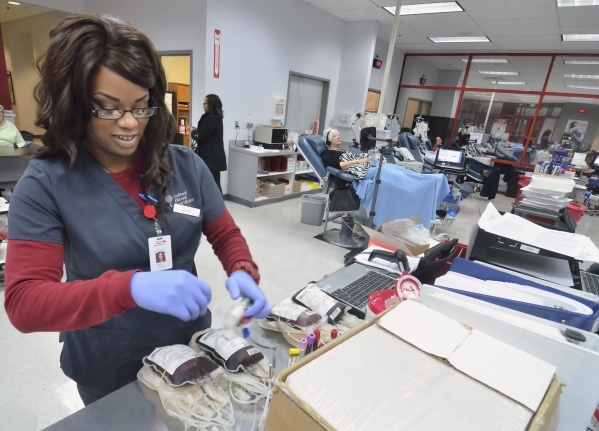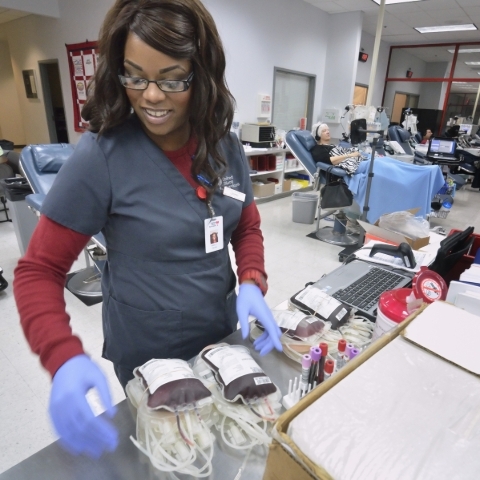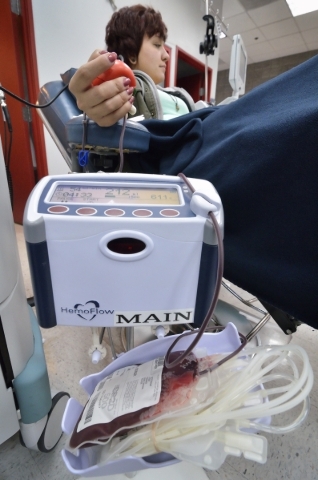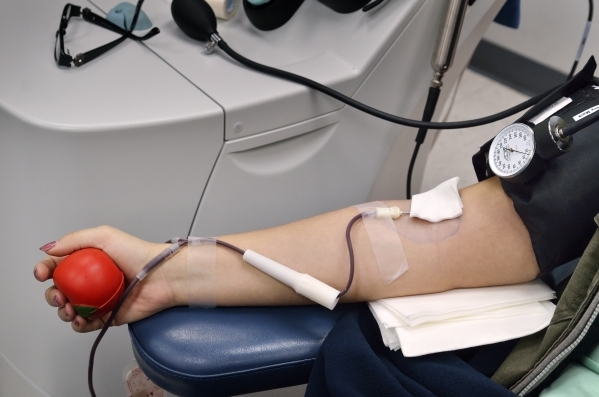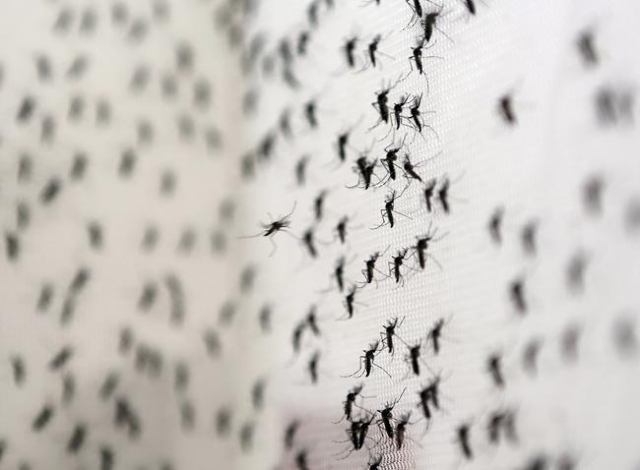Visitors to Zika-affected regions asked to delay blood donations
Visitors to areas affected by Zika virus are being asked to hold onto their blood, for now.
The American Red Cross and United Blood Services will ask people to temporarily postpone donating blood if they've recently traveled to countries with outbreaks of the typically mild Zika virus disease, which causes symptoms including fever, rash and joint pain lasting up to about a week.
Death as a result of the disease is rare, but there's some evidence linking it to birth defects in infants.
People who have visited Mexico, the Caribbean, Central America or South America within 28 days of their donation appointment will be asked to delay giving blood, Red Cross Vice President of Scientific Affairs Susan Stramer said in a Wednesday statement.
United Blood Services plans to do the same, also asking travelers who have visited Cape Verde and Samoa to delay donating blood until after the 28-day period, said Jeannine McCoy, Nevada regional donor recruitment manager.
It was not immediately clear when the organizations would enact the measures locally, but the Red Cross says it is working "as quickly as possible" to establish a system.
People who donate blood to the Red Cross and notice Zika-like symptoms within 14 days of the donation are asked to alert the organization. The Red Cross will quarantine any blood from donors of questionable health, Stramer said.
"The risk of transmission through blood donation continues to be extremely low because of the current health screening process for blood donors in the continental U.S.," she said.
There are no confirmed cases of Zika virus disease in Nevada, according to the state Department of Public and Behavioral Health. About 80 percent of infected people don't show symptoms.
James M. Wilson, director of the Nevada State Infectious Disease Forecast Station at the University of Nevada, Reno, has said there's little chance of a major Zika virus outbreak in Nevada because of the state's climate and absence of the Aedes mosquito species.
The bite of the Aedes is the major culprit behind the virus' spread, according to the Centers for Disease Control and Prevention. The mosquitoes pick up the virus when they feed on an infected person.
Research suggests other types of mosquitoes might also be able to carry the virus. There have also been reports of the virus spreading through blood transfusion, sexual contact, and from mother to child during pregnancy.
Pregnant women are advised to avoid regions with Zika outbreaks after a rise in reported birth defects in areas including Brazil.
Brazil has seen a spike in reported cases of microcephaly, in which infants are born with abnormally small heads, often signaling issues with brain development. Scientists believe the cases may be linked to Zika virus.
Wilson said Nevada's position as a major travel hub means it's likely the state will see Zika cases.
"I'd be shocked if we didn't have cases of people returning to Nevada who are infected," he said.
McCarran International Airport has received no instruction from the Centers for Disease Control and Prevention that extra precautions against Zika virus disease are warranted, airport spokesman Chris Jones said.
According to a statement from U.S. Customs and Border Protection, customs personnel look for obvious signs of illness at all U.S. entry ports where they are stationed.
Overtly ill travelers can then undergo additional inspection and possibly be referred to the CDC.
According to the CDC, the countries and territories with reported active Zika transmission are: Barbados, Bolivia, Brazil, Colombia, Puerto Rico, Costa Rica, Curaçao, Dominican Republic, Ecuador, El Salvador, French Guiana, Guadeloupe, Guatemala, Guyana, Haiti, Honduras, Jamaica, Martinique, Mexico, Nicaragua, Panama, Paraguay, Saint Martin, Suriname, U.S. Virgin Islands, Venezuela, American Samoa, Samoa, Tonga and Cape Verde.
The Dallas County Department of Health and Human Services confirmed two cases of the disease in the area, one of which appears to have been sexually contracted.
Contact Pashtana Usufzy at pusufzy@reviewjournal.com or 702-380-4563. Find her on Twitter: @pashtana_u.



